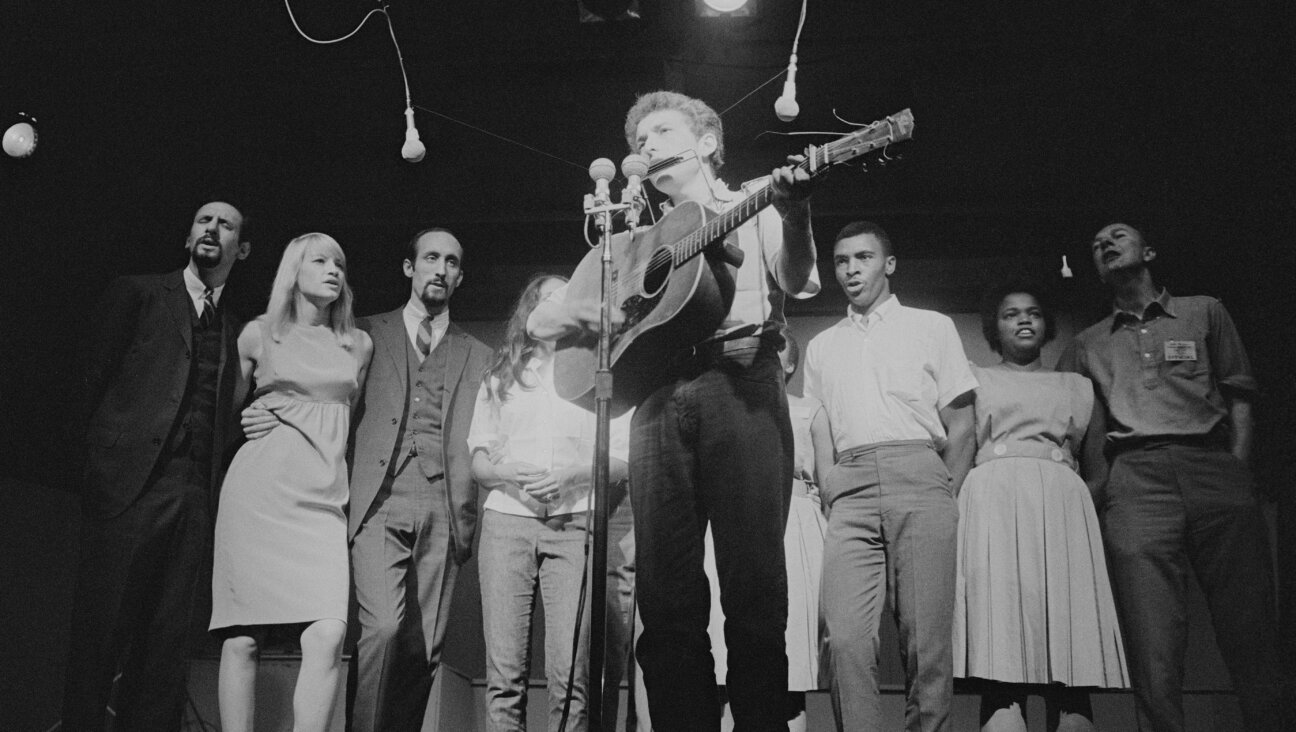In Memory Of Walter Becker, A Love Song For Steely Dan

Walter Becker of Steely Dan Image by Getty Images
By Dan Epstein Swimming lessons at the “Y” were the worst.
For reasons I can no longer recall — but which probably had at least something to do with my stubborn resistance to taking any sort of extra-curricular instruction in anything that I wasn’t already deeply interested in — I got a late start on learning how to swim. My dad didn’t sign my sister and I up for after-school swimming lessons at the Ann Arbor YM/YWCA until I was already ten years old, which meant starting at the “Tadpole” level along with kids who were four or five years younger than me.
It was incredibly humiliating. One time after class, while passing the main staircase at the “Y,” I was spotted by a group of girls that I knew from my Fifth Grade class at Burns Park. “Hey, Dan,” one of them called out from the upper landing. “What class are you taking?” Faced with the choice of admitting the awful truth, telling an easily debunked lie (my hair was obviously still wet, for one thing), or simply running wordlessly out of the building, I instinctively chose the third option.
I took my final “Y” swimming class in May 1978, just a week or two after I turned twelve. We had to pass a series of individual tests in order to graduate from the “Minnow” level — an achievement which meant that I could now officially handle myself reasonably well in the deep end of any pool, if not exactly on the open ocean — so I had plenty of time to happily drift and daydream while the seven- and eight-year-olds in the class took turns demonstrating that they could tread water and float on their backs. As I glided slowly through the heavily chlorinated water, knowing I would never have to dive into that dreaded “Y” pool again, I repeated a triumphant mantra in my head in celebration: “They call Alabama the Crimson Tide/Call me Deacon Blues.”
It seemed like I’d seen Steely Dan’s “Aja” album, with its arresting cover image of a shadowy geisha, in the living room of every one of my dad’s friends that spring. But it took me a while to connect it with the lush and languid “Deacon Blues,” a song so far removed from what I thought of as pop music that it didn’t really register the first twenty or thirty times I’d heard it on the radio. Finally, my friend Abbot — during one of our many CKLW-soundtracked Nerf basketball shoot-arounds — called my attention to it. “You should like this song,” he said. “They mention the Crimson Tide.”
I zeroed in on the chorus, and realized he was right. I had no idea what the song was about — it seemed both forbiddingly adult and almost surrealistically nonsensical — but I loved the Crimson Tide reference. My grandfather had spent most of the 1970s in Tuscaloosa as the dean of the University of Alabama’s School of Social Work, and in that time (and over the course of many summer and Christmas visits) I’d developed a fondness for ‘Bama football that nearly rivaled my love for the U of M’s Wolverines. Grandpa Fred even lived two or three doors down from Bear Bryant, Alabama’s legendary coach, who we used to run into during evening walks around the neighborhood. I had no idea why Steely Dan (whoever he/it was) would name-check the Crimson Tide, but the mere fact that they did so was enough to make me listen hard to the song, and its majestic music slowly sucked me in from there.
Steely Dan’s music was smooth, sumptuous, and seemed aimed at a much older demographic than the one I belonged to at the time. And yet, as the spring of 1978 blurred into the summer and I found myself really caring about popular music for the first time, their omnipresence on the AM dial became increasingly apparent to me. “Peg,” “Josie” and “FM (No Static At All)” were all sizeable hits that year, but it also wasn’t uncommon for radio stations to whip out “Do It Again” or “Reelin’ in the Years,” breakthrough hits for the band from ‘72 and ‘73, and songs that I now belatedly remembered as seemingly being on the car radio whenever we’d go for an ice cream run to the Washtenaw Dairy. But for some reason, I’d never heard their biggest hit, 1974’s “Rikki Don’t Lose That Number,” until one afternoon in July ‘78.
My sister and I were out in Los Angeles, visiting my mom, and at that moment we were edging our way down Laurel Canyon in a rickety VW Bug that belonged to John, my mom’s boyfriend. “Oh man, is that Steely Dan?” John cried, cranking the radio volume as the song’s opening vamp came rolling through his dashboard speakers.
Indeed it was, and I was completely entranced — not just by the song’s hypnotic groove, but by its words. Once again, the lyrics seemed to be way more “adult” than anything I was used to hearing, and they seemed to start somewhere in the middle of the story. “We heard you’re leaving/That’s okay.” Who’s leaving? And why? “We could stay inside and play games/I don’t know.” Like what, Yahtzee? I didn’t know, either. But the lines “You tell yourself you’re not my kind/But you don’t even know your mind” resonated with me, even if only from the standpoint of having “liked” a girl or two in my sixth grade class who hadn’t “liked” me back for reasons that they couldn’t or wouldn’t fully articulate. “And you could have a change of heart,” Donald Fagen offered, hopefully. Oh yeah, I could definitely relate.
As much as I immediately loved the song — and at least kind of dug their other hits that I was aware of — it wasn’t like I instantly declared myself a Steely Dan fan at that moment. The first time I ever heard Warren Zevon’s “Werewolves of London” or ELO’s “Sweet Talkin’ Woman,” I felt compelled to run out and buy those records as soon as I had enough money in my piggy bank. But Steely Dan’s music seemed mysterious and oddly unapproachable; as with the ocean, these were waters I instinctively felt leery about swimming in. Plus, by this time I’d seen photos in the newspaper of Dan mainmen Walter Becker and Donald Fagen, and they both looked like some of the creepier inhabitants of the communal Santa Monica Victorian where my mom had lived for a few years in the mid-70s. Not that I required my pop gods to look cool or cuddly, but the glowering scraggliness that these guys exuded was distinctly off-putting.
Between my insatiable hunger to learn and absorb as much as I could about music — an obsession that kicked into high gear in the summer of ‘78, and hasn’t really slowed since then — and my mile-wide streak of adolescent cynicism, I quickly became suspicious about the stealthy ubiquitousness of Steely Dan’s music. John, my mom’s boyfriend, was a big fan of jazz and blues (he’d previously done time as Taj Mahal’s tour manager) so it made perfect sense that he would be attracted to Steely Dan’s jazz-influenced sound. But I started to notice that, for many of the adults I would interact with over the next few years, the “Aja” LP served as a sort of totem of sophistication, something you had to have sitting out in your fern-shrouded, shag-carpeted living room if you wanted to be taken seriously as a person of taste in the late 1970s. And then there was stuff like Donny Osmond singing “Peg” during the 1979 Miss Universe pageant TV broadcast (yes, me and a couple of bored friends watched it on one hot summer night in Ann Arbor), which made the song seem like nothing more than mainstream pap.
Maybe this music was “adult,” but was it adult in the soulless, acquisitive, middle-class American way that I’d already come to distrust? Hell, Michael McDonald of the Doobie Brothers had sung harmonies on the original recording of “Peg,” and for someone whose tastes were rapidly veering towards hard rock, new wave and even punk, the Doobies were the epitome of lameness. By the time “Gaucho” hit the charts in late 1980, I was off “The Dan” completely; I had written their music off as pretentious, self-congratulatory corporate product, the sort of thing that primarily existed as background music for record industry gladhanders like Paul Simon’s smarmy “Annie Hall” character to consume “the Cuervo Gold, the fine Colombian” to. Wasn’t punk supposed to eradicate this kind of shit?
It would take me until the mid-90s to realize how utterly, comically wrong I had been about Steely Dan. I think my “change of heart” resulted in part from moving to Los Angeles — whereupon I began to understand how many of their songs were about (or at least inspired by) being uptight, snarky East Coast (and at least half-Jewish) intellectuals adrift amid the decadence of 70s L.A.; Becker and Fagen loathed the City of Angels, and loathed themselves even more for succumbing to its temptations. I also learned to appreciate how their sleek, hook-filled, impeccably-arranged music served as a Trojan horse for their twisted, sarcastic and decidedly transgressive lyrical worldview. And despite what I’d once perceived as an almost infuriating emotional remoteness in their work, I actually found myself taking refuge and comfort in “Any Major Dude” and (especially) “Any World That I’m Welcome To” during some very dark moments in my life.
There was also the belated realization (driven by articles like Alex Wilkinson’s excellent Rolling Stone profile from 2000) that Becker and Fagen were an incredibly unique, fascinating and (dryly) hilarious creative duo. The two musicians had met at Bard College, where they’d bonded over a love of jazz and a shared cynical sense of humor, the latter the result of them both feeling like outsiders since childhood. That humorous cynicism informed their best work — and in a Steely Dan-worthy irony, I’d been too cynical in my younger days to actually recognize or appreciate that aspect of their songwriting.
Love ‘em or hate ‘em — and I have certainly done both in my time — there was no pop duo like Becker and Fagen. It’s incredibly sad that Becker is gone now, though it’s also kind of amazing that he actually lived this long (his Gaucho-era heroin habit nearly got the best of him), and that the infamously road-averse pair was able to make a spectacular comeback as a touring act during the last twenty-five years. Fagen has said that he will continue to play Steely Dan’s music without his partner, which is fair; Fagen sang the bulk of their songs anyway, and shared Becker’s vision of using only top-notch players onstage and in the studio, so it’s not like the music will sound appreciably different without him there.
Still, that same music wouldn’t exist without Walter Becker’s brilliant contributions. He leaves behind an incredible body of work, one which I (and so many others) continue to successfully plumb for new joys, and one whose uncompromising singularity of vision would be remarkable in any age. As they say in baseball, Becker took his hacks and didn’t get cheated; and as any major (league) dude will tell you, you can’t really ask for much more than that. Rest in funky peace, Walter.
Follow Dan Epstein on Twitter, @BigHairPlasGras

















